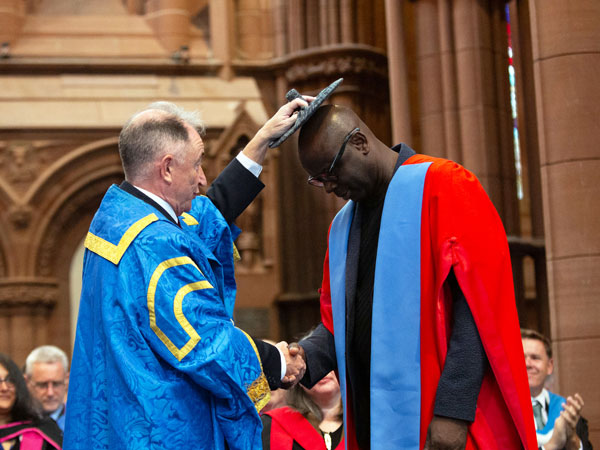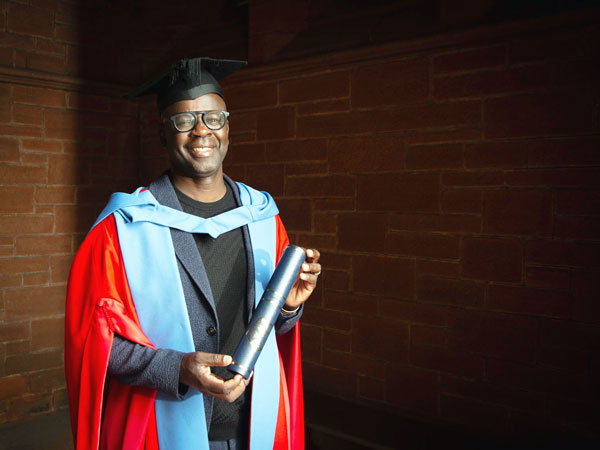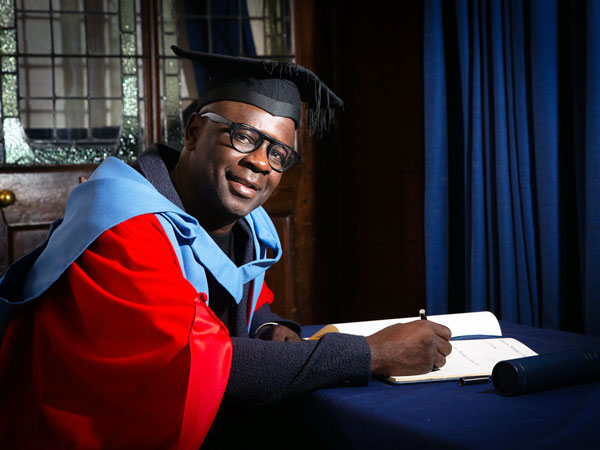
Honorary DegreesLilian Thuram
Meet Lilian
Lilian Thuram is an internationally renowned public figure, one of the greatest footballers of his generation, and an anti-racism activist and educator.
Most celebrated footballer
Lilian Thuram is one of France’s most celebrated footballers. He long held the record as the country’s most capped player (142 caps!) and was a vital member of the 1998 team that won the World Cup, scoring both goals in the semi-final victory. During his career, he played for some of Europe’s major clubs: Monaco, Parma, Juventus and Barcelona.
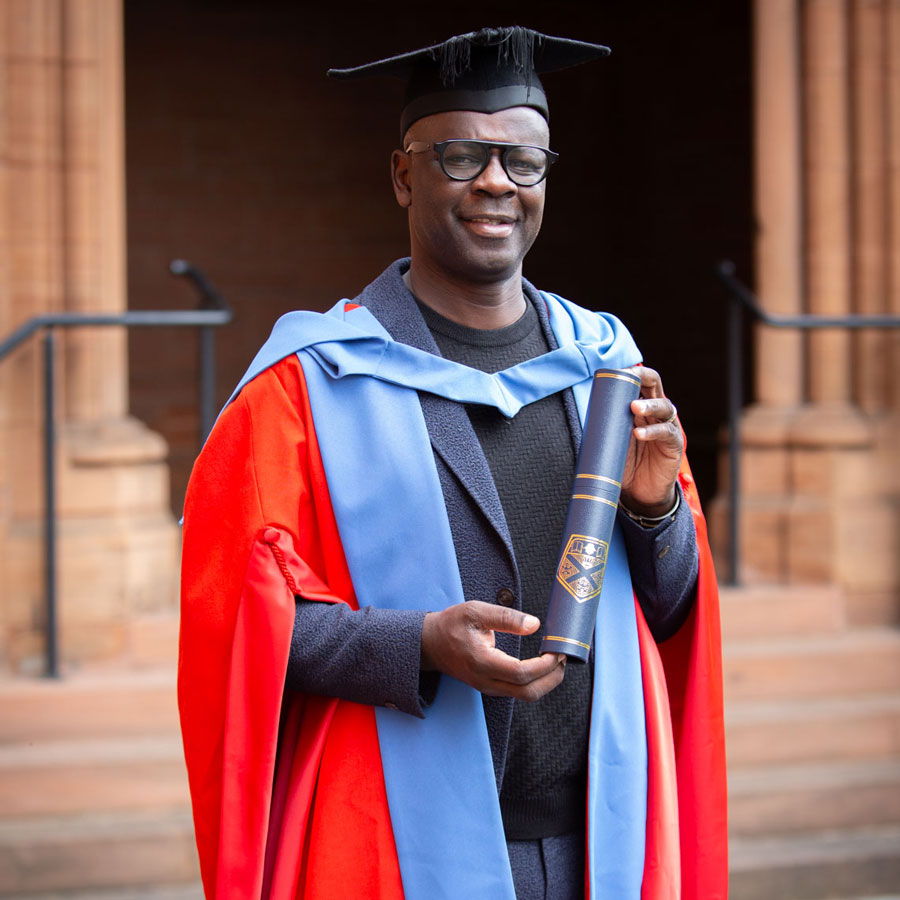
Anti-racism activist
Born on the French Caribbean island of Guadeloupe, Lilian’s family moved to the outskirts of Paris when he was a child. It was there that he first encountered anti-black racism and began to reflect on its causes.
As one of several ethnic minority players on the World Cup-winning team, he later became one of the most visible and articulate representatives of the diversity that they embodied. Already an eloquent and outspoken critic of racism during his playing career, in 2008, after his retirement as a footballer, he created the Lilian Thuram Foundation for Education against racism, which has been very active in bringing his anti-racist message to schoolchildren not only in France, but also around the world.
Lilian has frequently collaborated with the research collective ACHAC, which has been at the forefront of debates about France’s colonial legacy, including on the curation of a prize-winning major exhibition held in Paris, 'Exhibitions: The Invention of the Savage' in 2011-12, which attracted 250,000 visitors during its six-month run. A poster version of the exhibition has travelled the world, including a tour of Scottish universities in 2018.
Bestselling author
Lilian has also written a series of important volumes on black history, the promotion of equality and the racist legacies of slavery and colonialism.
In 2010, he published a bestselling book of essays on his black heroes - Mes Etoiles Noires. This volume has subsequently been translated into several languages, including English under the title 'My Black Stars' (2021).
In 2020, he published another bestselling volume, 'La Pensée Blanche' (White Thinking), which explores the history of racist thinking and its ability to evolve and endure in Western societies. This volume has also been translated into multiple languages, including English, and has received widespread media coverage (including the BBC, The Times, The Guardian).
Watch
Watch Lilian as he delivers his speech and hear what he had to say to our students at their graduation ceremony.
We caught up with Lilian ahead of receiving his Honorary Degree.
Congratulations! How do you feel about receiving your Honorary Degree from the University of Strathclyde today?
I’m very happy and also very proud that the anti-racist work of my Foundation has been recognised by the University, especially at this very difficult moment in French history when the far right is on the rise. It’s given me encouragement to continue with my work.
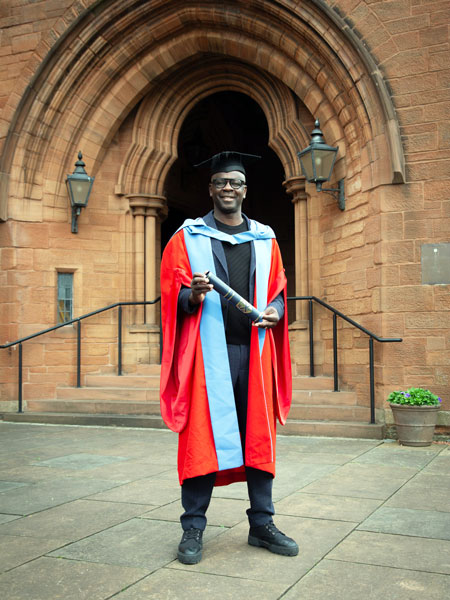
What’s the most important life lesson you’ve learned that helped you get to where you are today?
That you don’t achieve anything solely by yourself. In all areas of life, you need to forge links with other people in order to achieve anything significant.
What's your favourite book?
The First and Last Freedom by the Indian philosopher, Jiddu Krishnamurti.
Who's the best player you ever played with?
That’s a really hard question as I played with lots of great players. And then there are great players in different positions. The team I most enjoyed playing with was Parma, as it was the first time I’d lived abroad, and it was a really great experience. But, you know, I’ve played in lots of great teams: the French national team, Juventus, Barcelona.
What is your proudest moment from your work with young people?
I’m very proud to have been a patron of Demos for over 10 years. It’s a charity that helps young people to access the world of classical music. Learning to play an instrument is a lifelong gift which gives young people a self-confidence that feeds into other areas of their lives.
What advice do you have for our graduates?
First of all, I’d like to congratulate them on their achievement. Then, I’d say that they should never forget those who helped them to get where they are today. That they should always believe in themselves. That they should never lose their love of learning, and always aim to be the best version of themselves that they can be. To care for themselves and others. And to stand up to hatred in all its forms.
